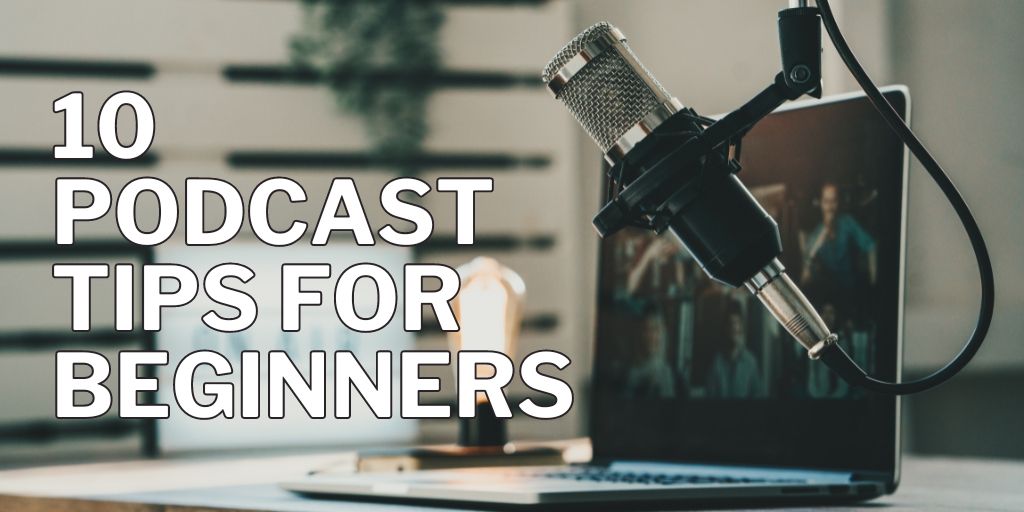In a world dominated by visuals, there’s a rising star making waves through the airwaves — the podcast. It’s like radio but better and more on-demand. If you’re just getting started with podcasting, here are some tips for setting yourself up for success.
What Is a Podcast?
Podcasts are digital audio or video files available for streaming or downloading on the internet. They cover a wide range of topics and have gained a lot of popularity in recent days. Users can subscribe to a podcast to get notified when new episodes are released.
Statistics indicate that over 50 million people, on average, tune in to podcasts every month. This number will keep increasing. As a creator, this presents a wealth of opportunities for you.
Why Start a Podcast?
Here’s why you need to start a podcast:
- Reach a global audience
- Build a community
- Establish authority by showcasing your expertise
- Monetization opportunities
- Personal branding
- Express creativity
- Content flexibility (freedom)
Podcast Tips for Beginners
1. Find Your Niche
There are many podcasts, and the niche you choose is what sets you apart. It’s recommended that you choose a niche related to your passion and expertise to attract dedicated listeners.
If you can’t find your niche, create one. Someone, somewhere, is dying to know more about underwater basket weaving. So, there’s an opportunity for everything. The difference is that some topics like finance, fitness, relationships, and technology attract more visitors than others.
2. Invest in Good Equipment
While you don’t need a professional studio, invest in a decent microphone to ensure good audio quality. Clear audio is essential to retain listeners.
Here are the best microphones you can buy on a budget:
- Rode Procaster
- Blue Yeti
- Sontronics Podcast Pro
- Rode NT-USB
- Samson Q9U
3. Plan Your Content
To script or not to script is a question for another day. Outline your episodes in advance to ensure you stay on track and deliver a cohesive message.
I recommend you not script every word because it’ll make the podcast sound artificial.
4. Edit Like a Pro
Editing can make or break your podcast. If the content is good, but if you don’t edit it well, people won’t listen. So, invest time in editing — even more than preparing and shooting — as it’s crucial to delivering professional content.
If you aren’t sure what editing software to use, here are some options for you:
- Adobe Premiere Pro
- DaVinci Resolve Studio
- Pinnacle Studio
- Shotcut
- Final Cut Pro (for Mac)
5. Embrace Your Unique Voice
Create a distinct voice for your podcast. Remember that people listen to your podcast for your voice, so make it stand out. Speak in a tone that encourages users to pay attention to your content.
6. Create an Engaging Intro
The intro plays a crucial role in a podcast. If it’s good, people will listen to it. If not, they will skip. So, make it short and engaging while clearly communicating what your podcast is about.
The intro is one of your podcast’s signatures (unique voice). So, try different intros and stick with the one that works best for you.
7. Stick to a Consistent Schedule
Consistency is key. Imagine if Netflix decided to drop episodes of your favorite series at random intervals. You would probably feel frustrated! Your audience will treat your podcast the same way. Show up regularly, and you’ll soon build a loyal audience base.
8. Promote Your Podcast
Promotion is your podcast’s megaphone. Shout it from the rooftops (if possible), share it on social media, and don’t shy away from asking your friends to spread the word.
In this digital age, promoting your podcast on social media can yield the best results. Publishing teasers, behind-the-scenes, and key takeaways are some effective ways to build curiosity in people and make them listen to your podcast.
Remember, even Shakespeare needed a bit of self-promotion — he didn’t become the bard overnight.
9. Engage With Your Audience
Don’t treat your audience just as imaginary friends; engage with them so you can build a loyal community. Conducting polls, asking questions, live streaming, etc., can help you engage with your audience. If your audience comments, respond to it.
And ask for feedback. Constructive criticism can help you improve, and positive feedback is motivation to keep going.
10. Learn From Failures
“Failure is the stepping stone to success.”
It’s normal for your first few episodes to fail; don’t let that discourage you. Learn, adapt, and grow. Remember that even the best podcasters had to deal with many unsuccessful episodes. They were successful because of their consistency, dedication, and ability to keep working hard and smart without giving up.
The Final Word
Podcasting is an exciting journey filled with growth opportunities, and these tips can help you succeed as a podcaster. If you’re dedicated and consistent, the day when millions of people listen to your podcast won’t be far away.
If you need more guidance to become a podcaster, get on a call with Ken.
Ken D Foster is an author, keynote speaker, and success coach dedicated to helping individuals unlock their full potential. With decades of experience in the entertainment industry, Ken has helped numerous aspiring TV personalities achieve their dreams.

